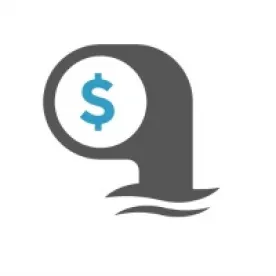On April 16, 2020, the $349 billion Paycheck Protection Program (PPP), overseen by the Small Business Administration (SBA), ran out of funding as companies applied for relief. On April 24, 2020, an additional $310 billion was made available for PPP loans. Since the PPP funds ran out, there has been a public focus on companies that applied for and received PPP loans. Indeed, certain entities have announced that they planned to return funds received under the PPP or as part of other programs under the Coronavirus Aid, Relief, and Economic Security Act (CARES Act). On April 23, 2020, the SBA and Treasury Department issued guidance (released in the form of an FAQ) (FAQ Guidance) with respect to businesses owned by large companies that have received PPP funds, highlighting the complex affiliation rules and a key required certification involved in obtaining a PPP loan. The FAQ Guidance was re-emphasized in new rules that were issued on April 24, 2020 by the SBA. In both cases, the SBA stated that any borrower who applied for a PPP loan prior to the guidance and who repays its loan by May 7, 2020 will be deemed to have made its certification in good faith.
The FAQ Guidance and new rules were released after commentary from President Trump and a warning from U.S. Treasury Secretary Steven Mnuchin that companies receiving emergency relief funds could be investigated if it appears that they did not need the money. Secretary Mnuchin also stated that it was “questionable” whether some larger companies qualified for PPP loans. The FAQ Guidance was issued in this context as follows:
Question: Do businesses owned by large companies with adequate sources of liquidity to support the business’s ongoing operations qualify for a PPP loan?
Answer: In addition to reviewing applicable affiliation rules to determine eligibility, all borrowers must assess their economic need for a PPP loan under the standard established by the CARES Act and the PPP regulations at the time of the loan application. Although the CARES Act suspends the ordinary requirement that borrowers must be unable to obtain credit elsewhere (as defined in section 3(h) of the Small Business Act), borrowers still must certify in good faith that their PPP loan request is necessary. Specifically, before submitting a PPP application, all borrowers should review carefully the required certification that “[c]urrent economic uncertainty makes this loan request necessary to support the ongoing operations of the Applicant.” Borrowers must make this certification in good faith, taking into account their current business activity and their ability to access other sources of liquidity sufficient to support their ongoing operations in a manner that is not significantly detrimental to the business. For example, it is unlikely that a public company with substantial market value and access to capital markets will be able to make the required certification in good faith, and such a company should be prepared to demonstrate to SBA, upon request, the basis for its certification.
Lenders may rely on a borrower’s certification regarding the necessity of the loan request. Any borrower that applied for a PPP loan prior to the issuance of this guidance and repays the loan in full by May 7, 2020 will be deemed by SBA to have made the required certification in good faith.
As noted above and also in the new rules issued on April 24, 2020, the SBA will focus on borrower eligibility using the affiliation rules (set forth in 13 C.F.R. § 121.301(f), as amended by the CARES Act), as well as the certification of economic uncertainty requiring the PPP loan to be necessary to support the ongoing operations of the borrower. Although the CARES Act deleted the SBA requirement that the borrower has tried and failed to access other financing, the FAQ Guidance states that a borrower must take “into account their current business activity and their ability to access other sources of liquidity sufficient to support their ongoing operations in a manner that is not significantly detrimental to the business.” While the above FAQ Guidance refers to certification standards available at the time of the loan application, the ongoing public scrutiny combined with the FAQ Guidance, including reference to a safe-harbor repayment period ending on May 7, 2020 (which was highlighted on April 24, 2020 in the new PPP rules), are causing some companies to reconsider whether they should keep funds received or accept funds for which they have been approved. As stated in the rules published on April 24, 2020, “[t]he Administrator, in consultation with the Secretary, determined that this safe harbor is necessary and appropriate to ensure that borrowers promptly repay PPP loan funds that the borrower obtained based on a misunderstanding or misapplication of the required certification standard.”
The new rules issued on April 24, 2020 specifically state that private equity funds and hedge funds are not eligible for PPP loans because such funds are primarily engaged in investment or speculation. The new rules also indicate that a portfolio company of a private equity firm must apply the affiliation rules in the same manner as any other business subject to “outside ownership or control.” But, the rules issued on April 24, 2020 also specifically note (as did earlier guidance) that affiliation rules are expressly waived by the CARES Act for PPP borrowers who receive financial assistance from an SBA-licensed Small Business Investment Company in any amount (including debt, debt with equity features, equity, and guarantees) and even if the PPP borrower has investment from other non-SBIC investors, which may well apply to various private equity fund portfolio companies.
In addition to the specific certification highlighted in the FAQ Guidance and new rules discussed above, each application requires certifications that information provided therein is true. An applicant may be exposed to significant legal consequences for false certifications or false statements. Each application is also subject to potential public disclosure under the Freedom of Information Act.
While the PPP rules (particularly the affiliation rules) can be complex, the SBA and Treasury Department have provided some clarification over the past few weeks. Borrowers (and potential borrowers) should consider their applications and applicable rules carefully with counsel, as appropriate, in light of these current developments and the safe harbor period ending on May 7, 2020.







 />i
/>i
